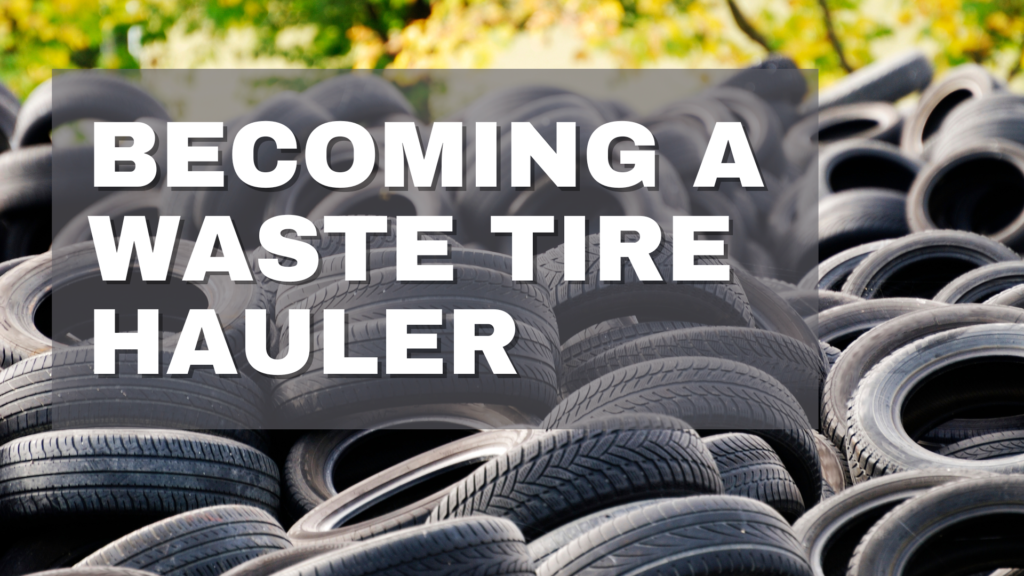Get An Instant Quote on California Waste Tire Hauler $10,000 Bond Now
California Waste Tire Hauler $10,000 Bond
Any person who wishes to register as a waste tire hauler in the state of California is needed to submit a California Waste Tire Hauler Bond to the California Department of Resources, Recycling and Recovery (CalRecycle). This bond is in the amount of $10,000.
The California Integrated Waste Management Board requires waste tire haulers registered in the state of California who operate in the business of transporting used and waste tires to post a California Waste Tire Hauler Bond in the amount of $10,000. The surety bond stipulates that the obliging party must demonstrate unwavering conformity with all legislation, regulations, and requirements for used and garbage tire transporter registration imposed by the state of California. Any individual who suffers financial losses as a consequence of criminal activities or regulatory breaches committed by the bonded principal is protected from legal action by the bond.
The Waste Tire Hauler Bonds in the state of California stay in full force and effect until they are canceled. The surety company has the right to cancel the bond at any time by delivering a written notice of cancellation to the Waste Tire Branch, Special Waste Division in Sacramento, California.
This notification must be sent through registered or certified mail. A copy of the notice must also be sent to the instructor. The notification of cancellation must be sent to the California Integrated Waste Management Board within the first 30 days for the cancellation to take effect.
The California Integrated Waste Management Board mandates that any company that transports waste or used tires in the state of California must post a surety bond in the amount of $10,000. Instantaneously and online, these bonds may be purchased with a premium of one hundred dollars for a duration of one year.
Under the terms of this bond, the following behaviors are not permitted:
- Without being registered, you are advertising your waste tire hauling service.
- Using a vehicle that is not permitted to carry tires in your business.
- Transportation of old or garbage tires to facilities that are not permitted.
In the event that the Principal violates any of the conditions of the bond arrangement, the Surety is obligated to pay consumers for any losses sustained, up to the entire value of the bond, if such damages result in financial hardship. It is necessary for the Principal to compensate the Surety for any and all losses that have been paid.
Purpose
All car verifiers operating inside the state of California are required to have a license and be bonded with a $5,000 California vehicle verifier bond, as stipulated by the California Department of Motor Vehicles (DMV).
In the state of California, a legitimate waste tire hauler registration is required for any firm or person who desires to engage in the waste tire hauling industry. Applicants are required to pay a bond in the amount of $10,000 in order to get this registration.
The California Waste Tire Hauler Bond guarantees that businesses who transport tires as part of their normal commercial operations will only dispose of the tires at facilities that either store or utilize them in a manner that is safe for the general public’s health. In the case that the tire hauler works outside of the restrictions established by the California Uniform Waste And Used Tire Manifest System, it is possible to file a claim against the California Waste Tire Hauler surety bond that they have purchased.
Even if the surety business will pay out the claim if it is resolved, the bond principal (the tire carrier in this example) is obligated to reimburse the surety company for any damages sustained as a result of the claim.
Becoming a Waste Tire Hauler
Waste tire transporters in the state of California are required by law to be in possession of a current waste tire hauler registration. Transporters of used tires do not need to pay a fee to the California Department of Resources Recycling and Recovery in order to have their registration applications processed. A finished registration application has to contain all of the following information in order to be considered complete:
- Business model
- Location of the facility
- The name of the company
- Evidence of bonding
- The paperwork that describes the vehicle

